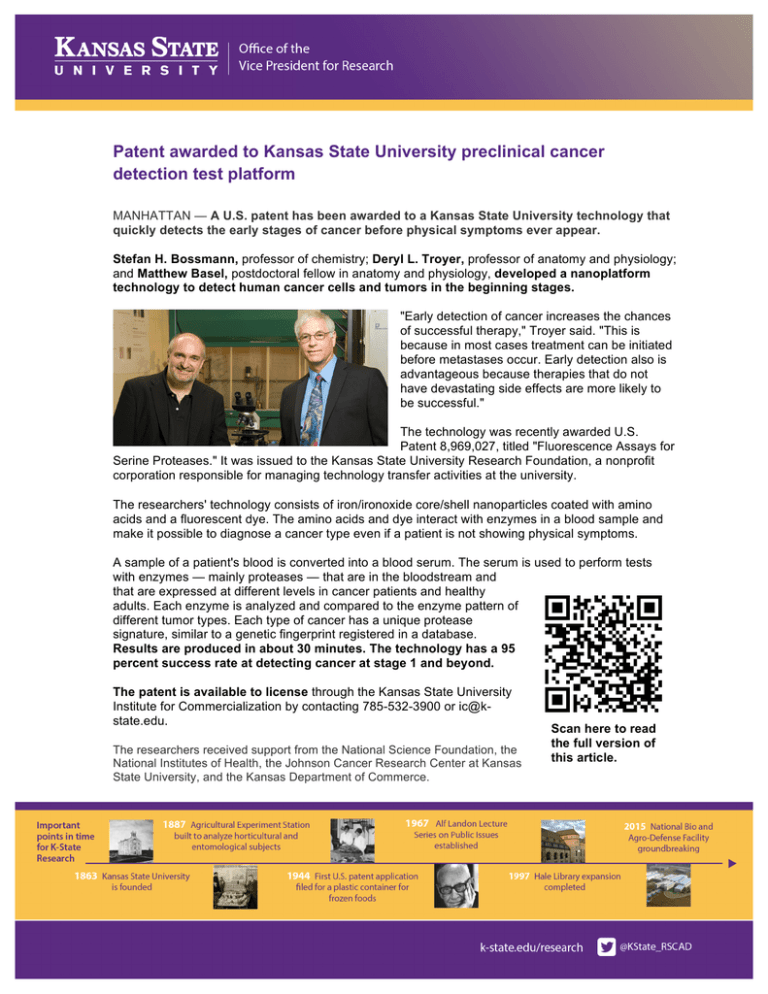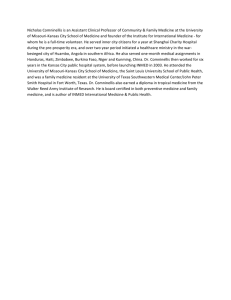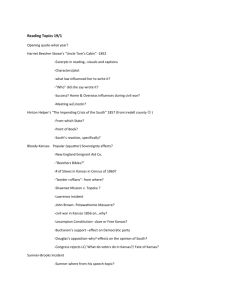Document 12958950
advertisement

Patent awarded to Kansas State University preclinical cancer detection test platform MANHATTAN — A U.S. patent has been awarded to a Kansas State University technology that quickly detects the early stages of cancer before physical symptoms ever appear. Stefan H. Bossmann, professor of chemistry; Deryl L. Troyer, professor of anatomy and physiology; and Matthew Basel, postdoctoral fellow in anatomy and physiology, developed a nanoplatform technology to detect human cancer cells and tumors in the beginning stages. "Early detection of cancer increases the chances of successful therapy," Troyer said. "This is because in most cases treatment can be initiated before metastases occur. Early detection also is advantageous because therapies that do not have devastating side effects are more likely to be successful." The technology was recently awarded U.S. Patent 8,969,027, titled "Fluorescence Assays for Serine Proteases." It was issued to the Kansas State University Research Foundation, a nonprofit corporation responsible for managing technology transfer activities at the university. The researchers' technology consists of iron/ironoxide core/shell nanoparticles coated with amino acids and a fluorescent dye. The amino acids and dye interact with enzymes in a blood sample and make it possible to diagnose a cancer type even if a patient is not showing physical symptoms. A sample of a patient's blood is converted into a blood serum. The serum is used to perform tests with enzymes — mainly proteases — that are in the bloodstream and that are expressed at different levels in cancer patients and healthy adults. Each enzyme is analyzed and compared to the enzyme pattern of different tumor types. Each type of cancer has a unique protease signature, similar to a genetic fingerprint registered in a database. Results are produced in about 30 minutes. The technology has a 95 percent success rate at detecting cancer at stage 1 and beyond. The patent is available to license through the Kansas State University Institute for Commercialization by contacting 785-532-3900 or ic@kstate.edu. The researchers received support from the National Science Foundation, the National Institutes of Health, the Johnson Cancer Research Center at Kansas State University, and the Kansas Department of Commerce. Scan here to read the full version of this article.





